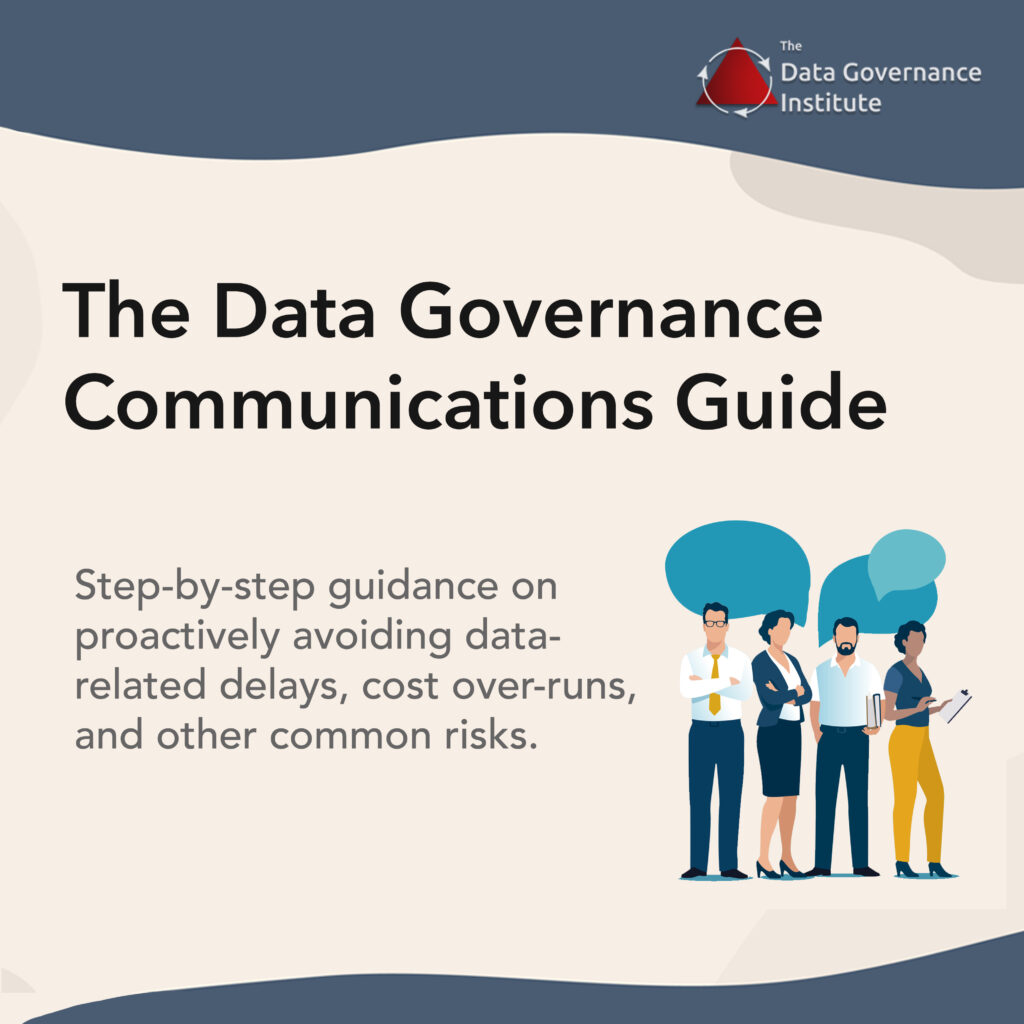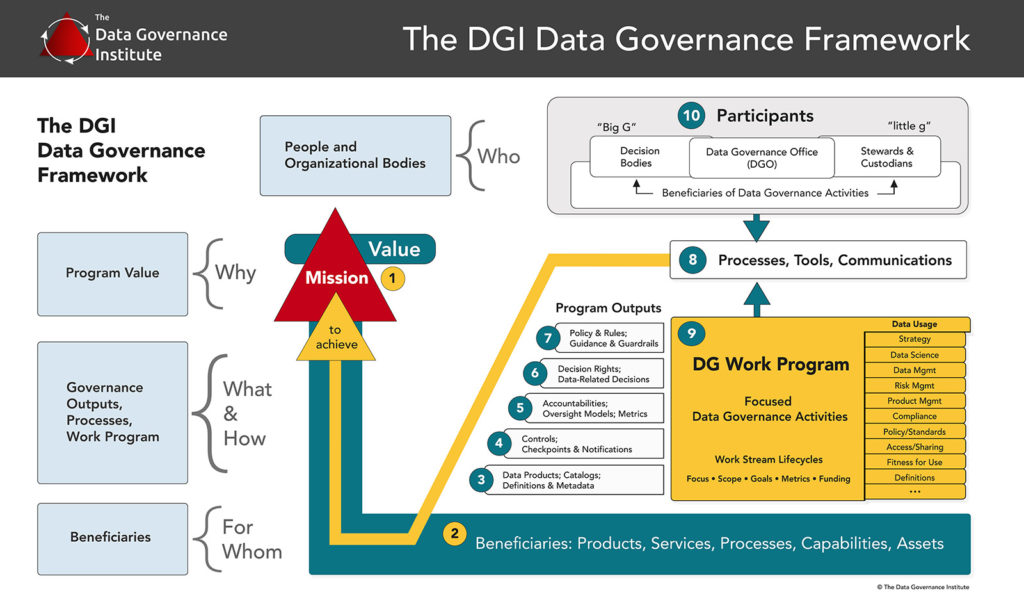This type of program typically comes into existence in conjunction with a major system acquisition, development effort, or update that requires new levels of cross-functional decision-making and accountabilities.

What other types of groups and initiatives might want such a program focus? Enterprise initiatives such as
- A move to Service Oriented Architecture (SOA), with its need for well-governed data
- A new focus on Metadata
- A Master Data Management (MDM) initiative
- Enterprise Data Management (EDM)
- Business Process Reengineering (BPR)
- Standardization on platforms
- Changes to systems due to new business focus or Merger and Acquisitions activity
A charter for this type of program may hold Data Governance and Stewardship participants accountable to:
- Ensure consistent data definitions
- Support architectural policies and standards
- Support Metadata Programs, SOA, Master Data Management, Enterprise Data Management (EDM)
- Bring cross-functional attention to integration challenges
- Identify stakeholders, establish decision rights, clarify accountabilities



